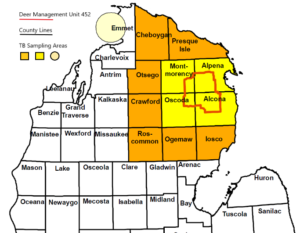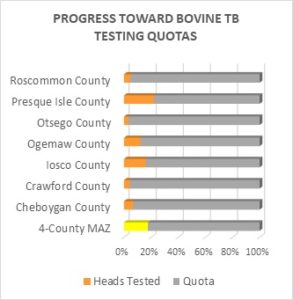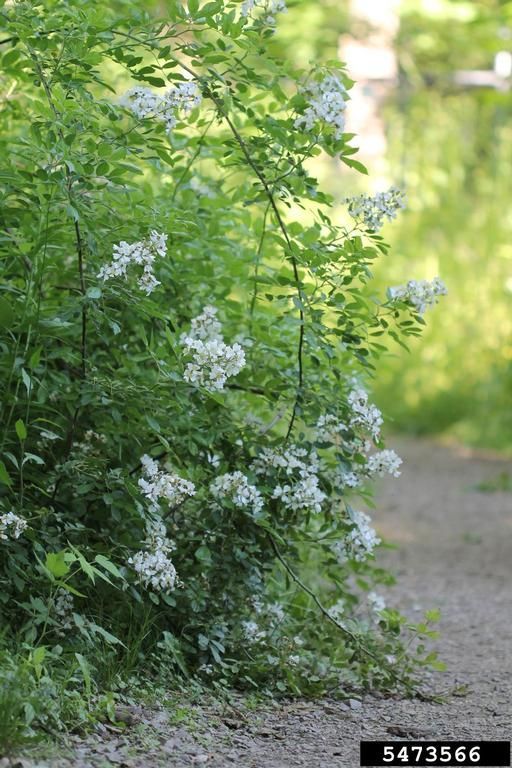Tests needed for Bovine TB Surveillance Program
The Michigan Department of Agriculture and Rural Development (MDARD) and the US Department of Agriculture  (USDA) work in partnership with the Michigan Department of Natural Resources (DNR) to establish surveillance quotas in order to detect changes in the occurrence of bovine TB in free-ranging white-tailed deer.
(USDA) work in partnership with the Michigan Department of Natural Resources (DNR) to establish surveillance quotas in order to detect changes in the occurrence of bovine TB in free-ranging white-tailed deer.
The seven counties surrounding MDARD’s Modified Accredited Zone (MAZ) have new TB testing quotas this year. In Presque Isle County 500 deer must be tested annually. The remaining counties must each test 300 deer each year.
Several deer hunting seasons have already taken place and archery season is well underway. Heads submitted for testing during these hunts and from deer taken under special permits issued by the DNR have already contributed to the 2020 quotas. However, many samples still need to be collected.
It is vital that these quotas are met. The agreement between USDA and the State of Michigan requires additional TB testing of cattle herds in any county that does not reach its deer sample quota.

Successful hunters from counties in the bovine TB sampling areas are encouraged to submit their deer heads for TB testing. Visit www.Michigan.gov/DeerCheck for up-to-date check station locations and hours as well as the location of hunter self-service drop boxes that are available 24 hours a day.
If you have been issued a permit to remove deer from your property by the DNR, make sure all heads from those deer are submitted for TB testing.
More detailed reporting of bovine TB surveillance can be found at www.Michigan.gov/bovineTB. Questions can be directed to Emily Sewell, DNR Wildlife Health Specialist, at SewellE@Michigan.gov or by calling 231-340-1821.
The post Tests needed for Bovine TB Surveillance Program appeared first on Michigan United Conservation Clubs.
Recent Posts



